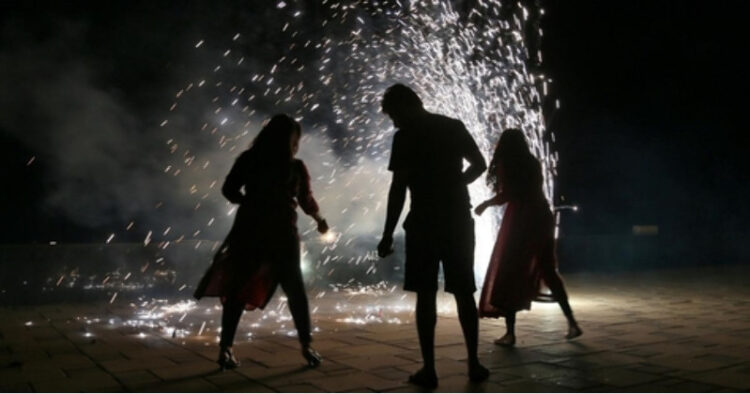The police registered 758 cases for flouting the norms. Over 240 shops were booked for storing and selling firecrackers.
The Chennai Police came down heavily on people who violated the firecracker ban order on Diwali (November 4). The police registered 758 cases against individuals for violating the order. Over 240 shops were booked for storing and selling firecrackers.
In an order on Friday (October 29), the Supreme Court banned firecrackers containing barium. Based on this order, the Tamil Nadu government issued guidelines about bursting firecrackers in the state.
The government order banned laris (series crackers) and barium salt firecrackers in the state. It also asked people to burst firecrackers from 6 am to 7 am and 7 pm to 8 pm on Diwali (November 4).
The police booked who violated the norms under Section 284 (negligent as to endanger human life, or to be likely to cause hurt or injury to any person, or knowingly or negligently omits to take such order) of the Indian Penal Code. The people were released later.
Some High Courts in the country had passed a blanket ban order on firecrackers. But the Supreme Court clarified that there was no such blanket ban.
The Calcutta High Court, on a plea by Roshni Ali, had passed an order banning all kinds of firecrackers in the state. But, after the Supreme Court order, the Calcutta High Court allowed the use of green crackers in the state on Diwali.
The bench of the Calcutta High Court observed, “This Court is conscious of the fact that it is not possible to inspect and ensure that green crackers are being used at every nook and corner of the State However, all necessary efforts must be made by the State to ensure that only green crackers are used and the sincerity of the State would be reflected in enforcement mechanism.”
The Supreme Court, in its order, had said, “It is made clear that there is no total ban on use of firecrackers. Only those firecrackers are banned, as directed herein above, which are found to be injurious to health and affecting the health of the citizens, more particularly the senior citizens and the children.”














Comments